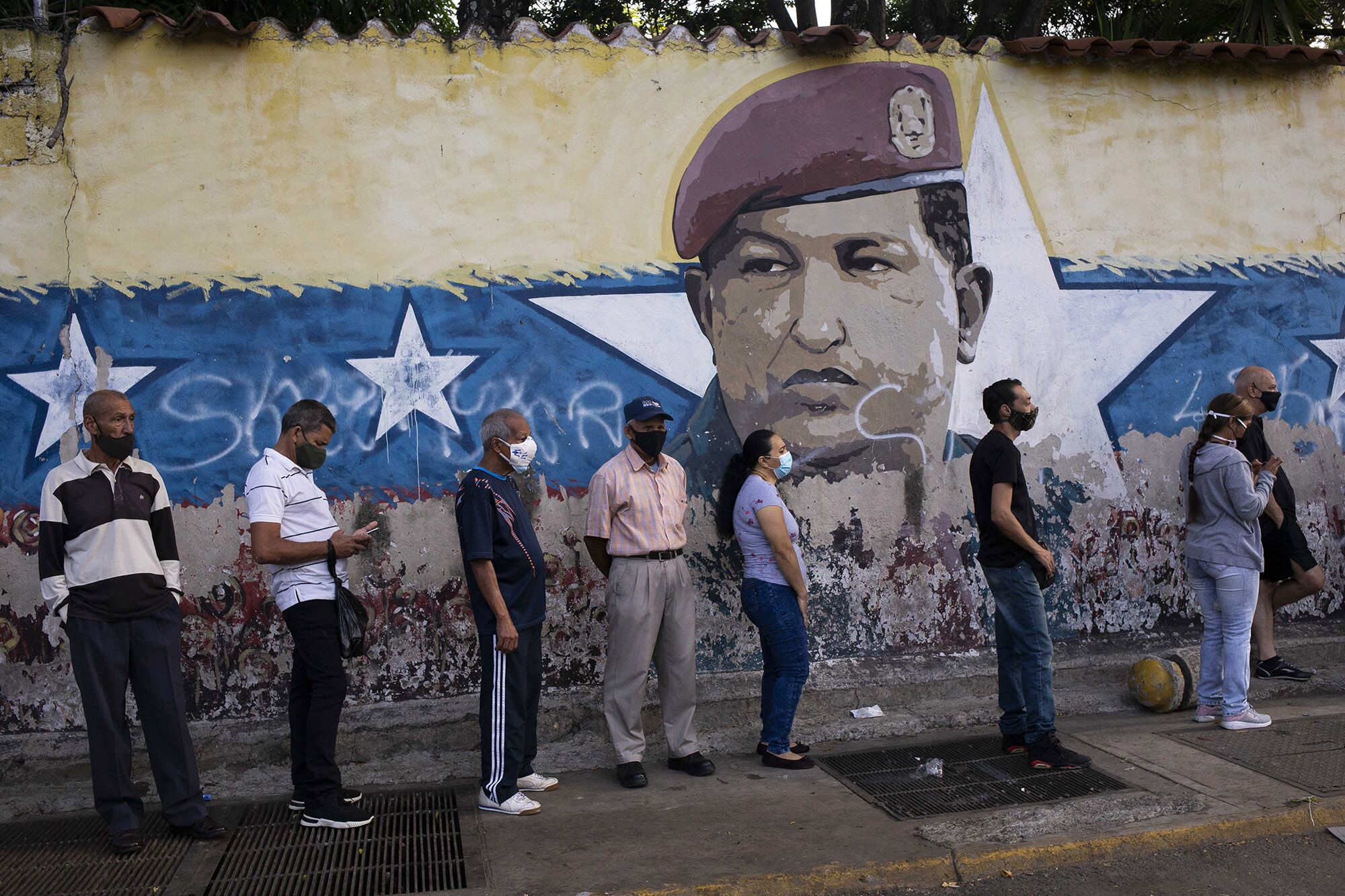Maduro Aims to Boost International Recognition in Venezuela Vote
By , , and- Socialist Party poised to win easily in regional elections
- Fractured opposition focused on races in handful of states
Venezuelans go to polls Sunday in regional elections poised to strengthen President Nicolas Maduro as the country’s political opposition slips further into disarray.
The country of 28 million will elect mayors, governors and local officials from roughly 70,000 candidates in the first elections that are being contested by opposition parties since 2017, and monitored by the European Union in 15 years. After stacking the electoral deck in its favor, Maduro’s Socialist Party does not risk losing control. Yet, amid a seven-year recession, crippled oil industry and open International Criminal Court investigation, the government wants to use the elections to help it reclaim legitimacy on the international stage.
What’s at stake?
Nearly 3,000 offices -- including governors of all 23 states -- are up for grabs in a country increasingly disillusioned with politics. Disunity within the opposition, the devotion of core Chavista voters and the impact of two decades of institutional control will hand the ruling Socialist Party victories in most races. The opposition, which initially criticized the elections as unfair and illegitimate, is focused on a handful of races, including governors’ offices in fives states. Even a better-than-expected showing from the opposition would have little impact on Maduro’s control in the country.
More important is whether the international community -- including the EU observers -- bless the elections as legitimate. Such a seal of approval would better position Venezuela to hold free and fair elections in the future, a key point in political negotiations between the opposition and government. Maduro could use such an endorsement to counter criticism that his regime stamps out democracy, potentially helping it restore relations with the foreign governments who cut ties, in part, because previous votes were deemed fraudulent.
Polls will be open from 6am to 6pm local time, with initial results expected late Sunday. Turnout, especially in competitive races, will be a focus as it may provide signals for the future makeup of the opposition ahead of presidential elections scheduled for 2024.
Are these elections considered fair?
Few expect blatant fraud or widespread ballot tampering. But opposition figures say the system remains beset by many of the same issues that prompted them to sit out previous votes. Maduro has stripped institutions, including the judiciary, of their independence. Traditional media outlets are controlled by the government. Hundreds of opposition figures have been banned from running. And more than 250 political dissenters are imprisoned, according to local human rights group Foro Penal.
In his quest for legitimacy, Maduro has allowed some changes. Two of the five national electoral council members come from the opposition for the first time in 17 years. The EU’s electoral monitoring mission of 100 people is the first it’s deployed in Venezuela since 2006. And many candidates that fled the country returned to run for office. That appears to have done little to motivate the electorate. Around 40% to 45% of roughly 21 million eligible voters are expected to cast ballots, according to Venezuelan pollster Datanalisis, compared to around 61% in the 2017 regional election. What’s more, nearly 6 million residents have migrated since 2015. Those who remain are increasingly apathetic, with only half of young Venezuelans favoring democracy, down from 68% in 2013, according to a poll by the Catholic University in Caracas.
What’s the state of the opposition, and Juan Guaido?
The question of whether to participate divided the dozens of parties that make up the loose coalition known as the Unitary Platform. Most of the principal parties joined the process, but Juan Guaido, who is recognized as the interim leader by the U.S. and other foreign governments, said conditions don’t exist for a free and fair election, urging those who do vote to reject Maduro’s candidates. The lack of unity is evident in key races, such as Tachira, a state in western Venezuela, where two candidates threaten to split the opposition vote. “The dispersion of the vote is deadly,” former opposition presidential candidate Henrique Capriles warned last month.
Regardless of Sunday’s outcome, cracks between parties are likely to continue to grow. Guaido’s role is in jeopardy. After his mandate expires in January, he may be left with the backing of a whittled down list of foreign governments, including the U.S., and small Venezuelan political parties. Even so, he remains the opposition leader with the broadest support, albeit with an approval rating of about 16%, according to an October survey by Datanalisis.
Read more: Guaido Risks Losing Post as Venezuelan Opposition Defies U.S.
Why is the European Union sending a mission?
The decision to send monitors was a “possible important step toward the search for a peaceful and democratic solution to the crisis in Venezuela,” said Josep Borrell, the EU’s foreign policy chief. The mission underscores how European representatives have slowly moved away from the more hard-line approach taken by their American counterparts, which have kept in place tight sanctions hoping to weaken Maduro. Still, the Biden administration has supported EU mission ahead of the vote. “The shortcomings that they identify in the present process can serve perhaps as a rough draft of a road map for real reforms to rebuild electoral system before Venezuelans next goes to the polls,” said Kevin O’Reilly, deputy assistant Secretary of State for Western Hemisphere Affairs at an Atlantic Council event.




Keine Kommentare:
Kommentar veröffentlichen